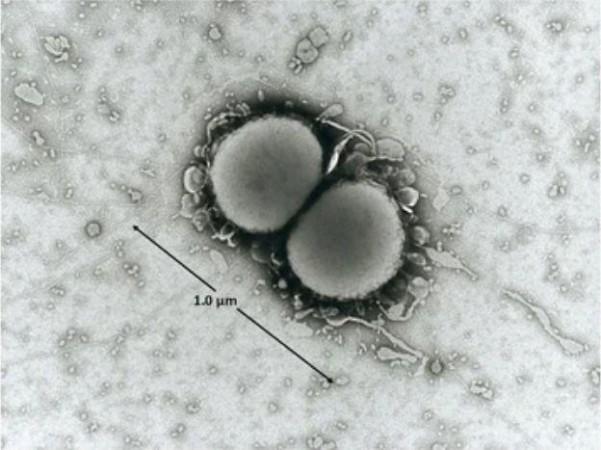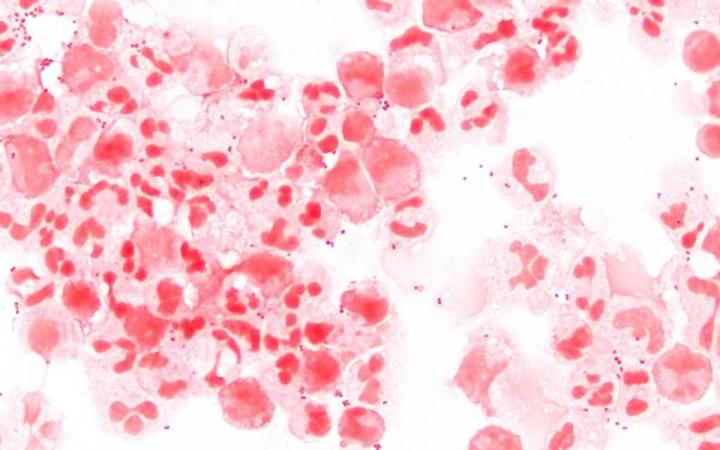Among all the infections that can affect the nervous system, meningitis is among the most lethal. While treatments for the condition exist, a preventive measure may save potential patients a world of pain. Now, in a first of its kind research, scientists have reported that a re-engineered bacteria administered via nasal drops was able to provide strong immune action against bacteria-caused meningitis
In the study, the researchers demonstrated that a gene inserted into a mostly harmless bacteria, Neisseria lactamica, enabled it to remain in the nasal regions and induce immune responses against Neisseria meningitidis. The study was published in the journal Science Translational Medicine.
"This work has shown that it is possible to protect people from severe diseases by using nose drops containing genetically modified friendly bacteria. We think this is likely to be a very successful and popular way of protecting people against a range of diseases in the future," stated Dr. Robert C. Read, co-lead author of the study, in a statement
'Cousins' With Different Abilities

N. lactamica is a generally harmless bacterium that is found in the upper respiratory tract, especially in young children. It is a commensal (i.e) N. lactamica uses the nutrition that is available from the host but does not share a close association with it. Though it colonizes the nasopharynx, the bacterium rarely causes a disease; and mostly in immunocompromised individuals. N. lactamica's presence triggers bactericidal antibodies that can cross-react with several meningococcal serotypes and serogroups.
While meningitis can occur in people of all ages, it primarily affects the elderly, infants, and young children. It is the inflammation of the protective membranes—known as meninges—that encases the spinal cord and the brain. Meningitis can be caused by viruses, bacteria, or fungi. Meningococcal meningitis, caused by N. meningitidis is a bacterial form that has a fatality rate of 50 percent (when left untreated).
According to the WHO, 1 to 10 percent of the global population carries N. meningitidis in their throats; displaying no symptoms. In some individuals, however, it can enter the bloodstream and result in fatal conditions such as meningitis and septicaemia (blood poisoning) Twelve types (or serotypes) of N. meningitides have been identified. Six of these are pathogenic; resulting in disease and epidemics.
Inserting A Crucial Gene

The current study builds on an older one conducted by the same team. In their previous work, the author utilized the natural ability of N. lactamica to elicit antibodies against N. meningitidis. They demonstrated that nasal drops of N. lactamica restricted the setting of N. meningitidis in just 40 percent of the participants.
For the continuing research, the scientists provided N. lactamica with a crucial weapon of its deadly relative—a 'sticky' surface protein that holds on to the cells that line the nose. They did so by inserting a gene—that expresses the protein responsible for the mechanism in N. meningitidis—into N. lactamica. The re-engineered N. lactamica expressed the meningococcal antigen Neisseria Adhesin A (NadA). This modified bacterium was introduced into the nosed of the participants through drops.
Strong Immune Response

The scientists found that along with promoting a stronger immune response, the modified bacteria persisted for longer durations. It was present for around 28 days, with a majority of the participants (86 percent) carried it for 90 days. No adverse symptoms were observed.
According to Dr. Jay Laver, co-lead author of the study, the technology employed in the study can have broader applications. "It is theoretically possible to express any antigen in our bacteria, which means we can potentially adapt them to combat a multitude of infections that enter the body through the upper respiratory tract. In addition to the delivery of vaccine antigens, advances in synthetic biology mean we might also use genetically modified bacteria to manufacture and deliver therapeutics molecules in the near future," he emphasized.

















